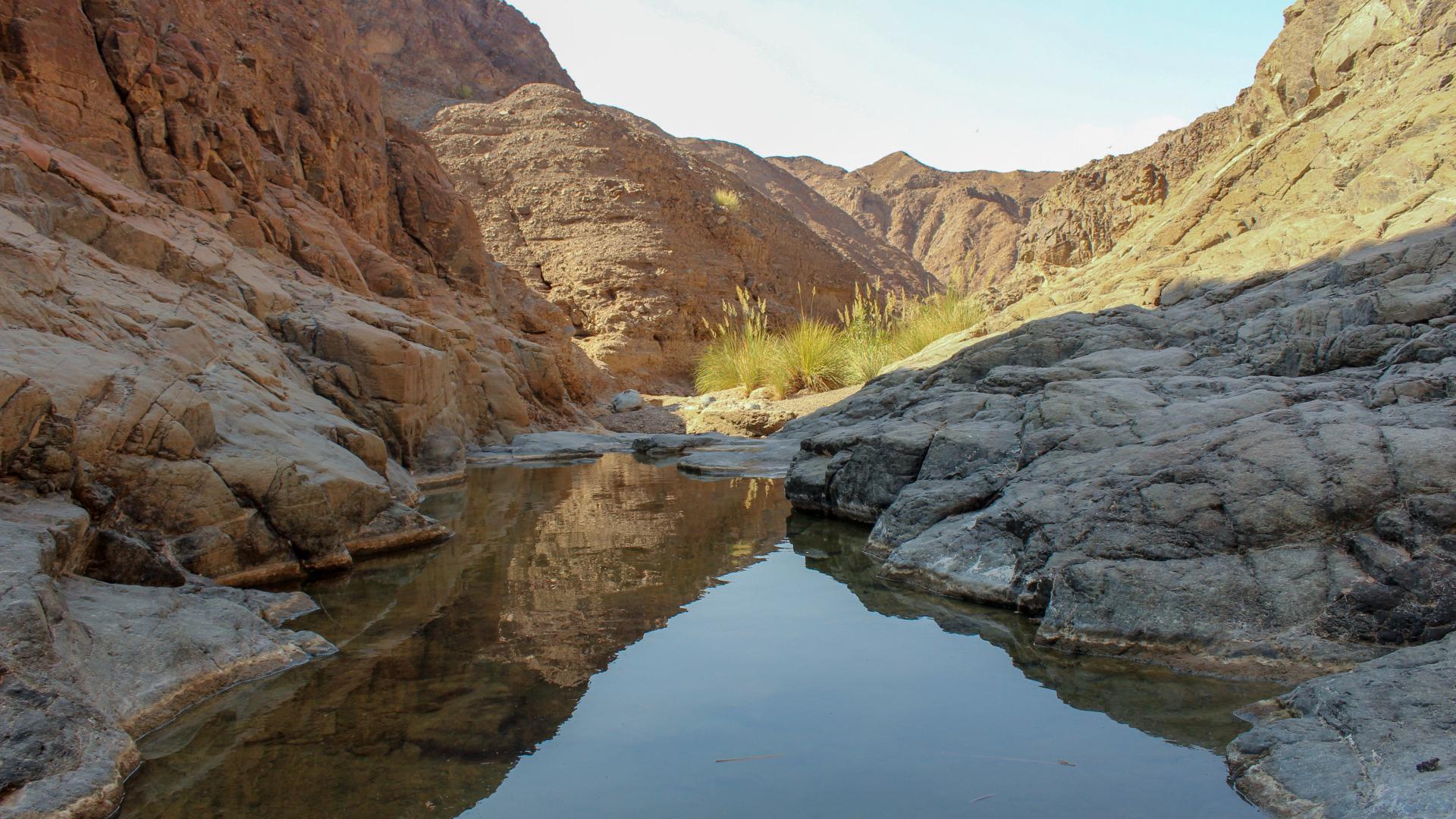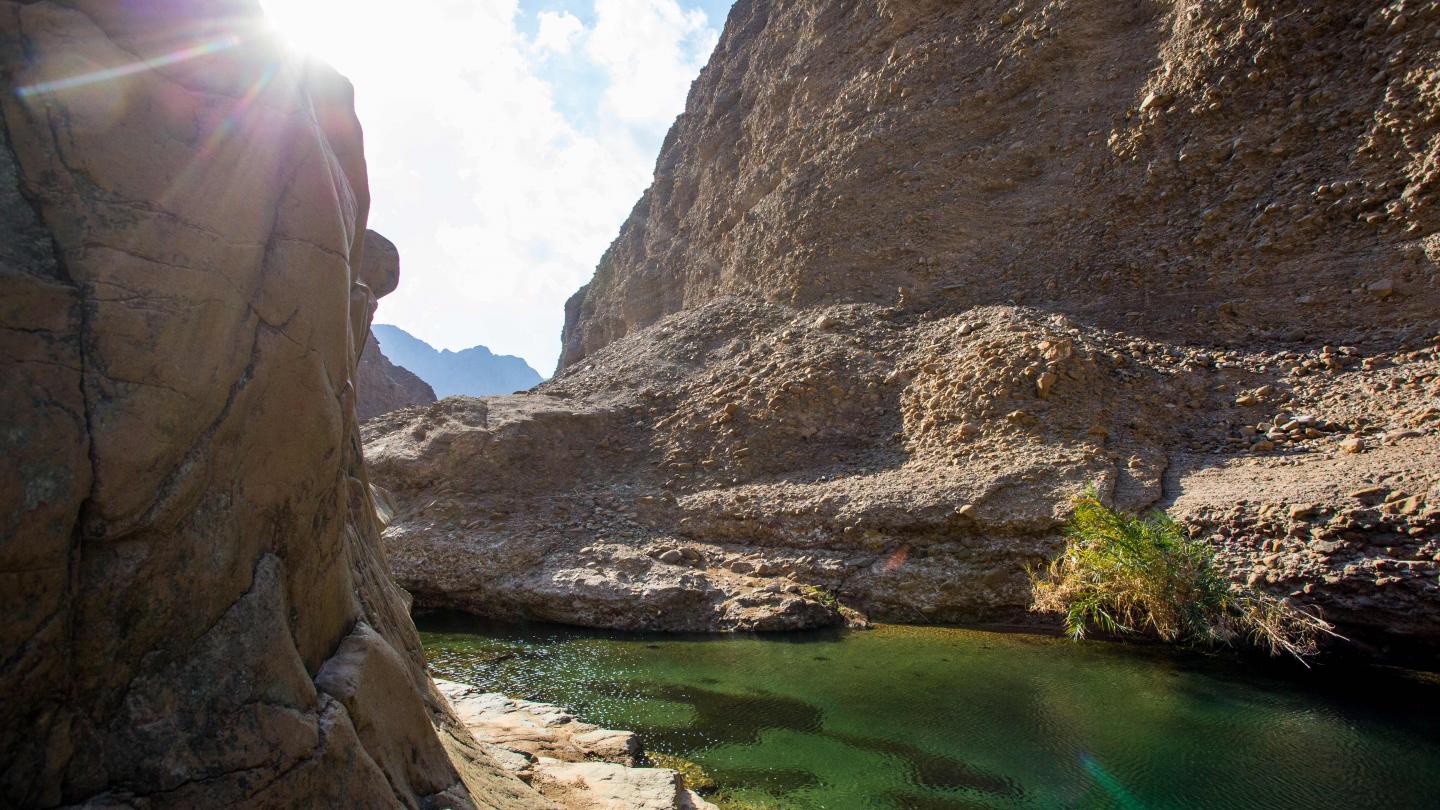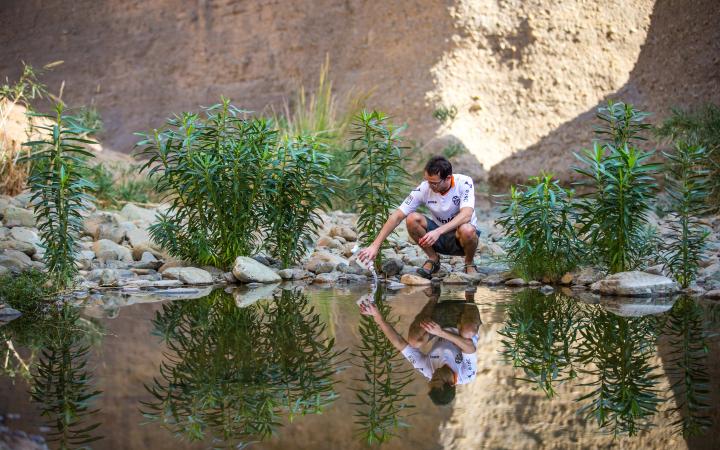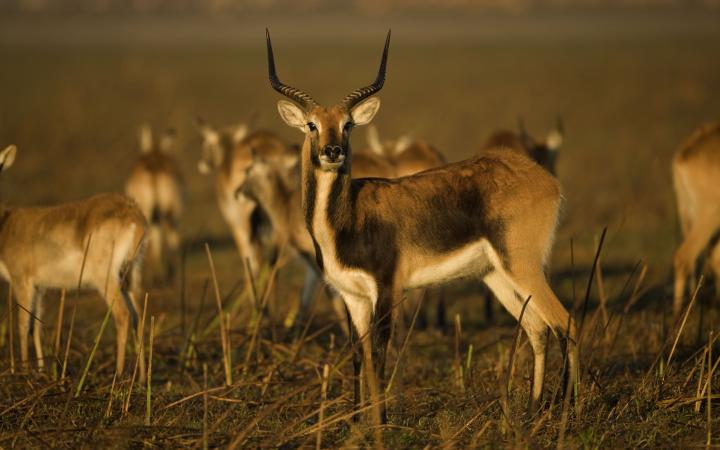Freshwater
Overview
Along with the air we breathe, water is the planet’s most precious resource.
Every living creature’s survival depends on it. And humans need it for almost everything – from the food we eat to our fuel, clothes and medicine. Very few countries have freshwater supplies that are so scarce and fragile as the UAE’s. We have no permanent rivers or natural lakes. Instead, we rely heavily on rainwater falling in the Hajar Mountains – creating year-round water in the wadis and underwater gorges.
Thirty years ago, all of our freshwater requirements were satisfied by natural sources. Today, most of our water is being provided by desalination.
This is partly due to a rapid rise in demand from urbanisation and population growth. But there has also been a drop in supply – climate change, low rainfall, high evaporation, over-exploitation of groundwater for agriculture, and the maintenance of artificial gardens, parks and forests are all taking their toll.
Several dam building and desalination programmes have been implemented to combat the looming water shortages. Unfortunately these solutions pose their own threats to the environment. Dams have severe effects on wildlife areas, creating droughts and upsetting the balance of nature. Desalination is also environmentally treacherous – affecting marine life and contributing to climate change.
It’s a situation no one can take lightly if we want to maintain our lifestyles and protect the abundance of wildlife living around our freshwater sources.
So Emirates Nature-WWF is partnering with government, business and communities to deliver achievable solutions. By establishing integrated protected area networks, we’re working towards a sustainable future for the UAE’s people and nature.
Changes in the UAE’s climate
The Middle east’s arid climate means the UAE averages less than 100mm rainfall a year. With heat and high evaporation, the result is that our groundwater struggles to ‘recharge’. Climate change, population growth, and increasing agriculture also exhaust groundwater resources, therefore we must collaborate collectively to preserve our resources.
What Emirates Nature-WWF is Doing
CONSERVING NATURAL WATER RESOURCES
We are passionate about restoring and sustainably managing our freshwater ecosystems.
From 2006, Emirates Nature-WWF has helped to characterise and monitor freshwater habitats in the UAE. In Fujairah’s Wadi Wurayah, we discovered that freshwater systems had ‘exceptionally good’ water quality. This in part led to its accreditation as a RAMSAR site in 2010 – giving it international recognition and significance. It also contributed to its status as the UAE’s first officially protected mountain area: in 2013 Emirates Nature-WWF was appointed by the Fujairah Government to spearhead the planning of the Wadi Wurayah National Park.
From 2013 – 2018, The Water Research Centre was the Middle East’s premier water research and education centre – inspiring local and regional communities to preserve freshwater resources for current and future use. It was also home to the Water Research and Learning Programme, promoting valuable citizen science.
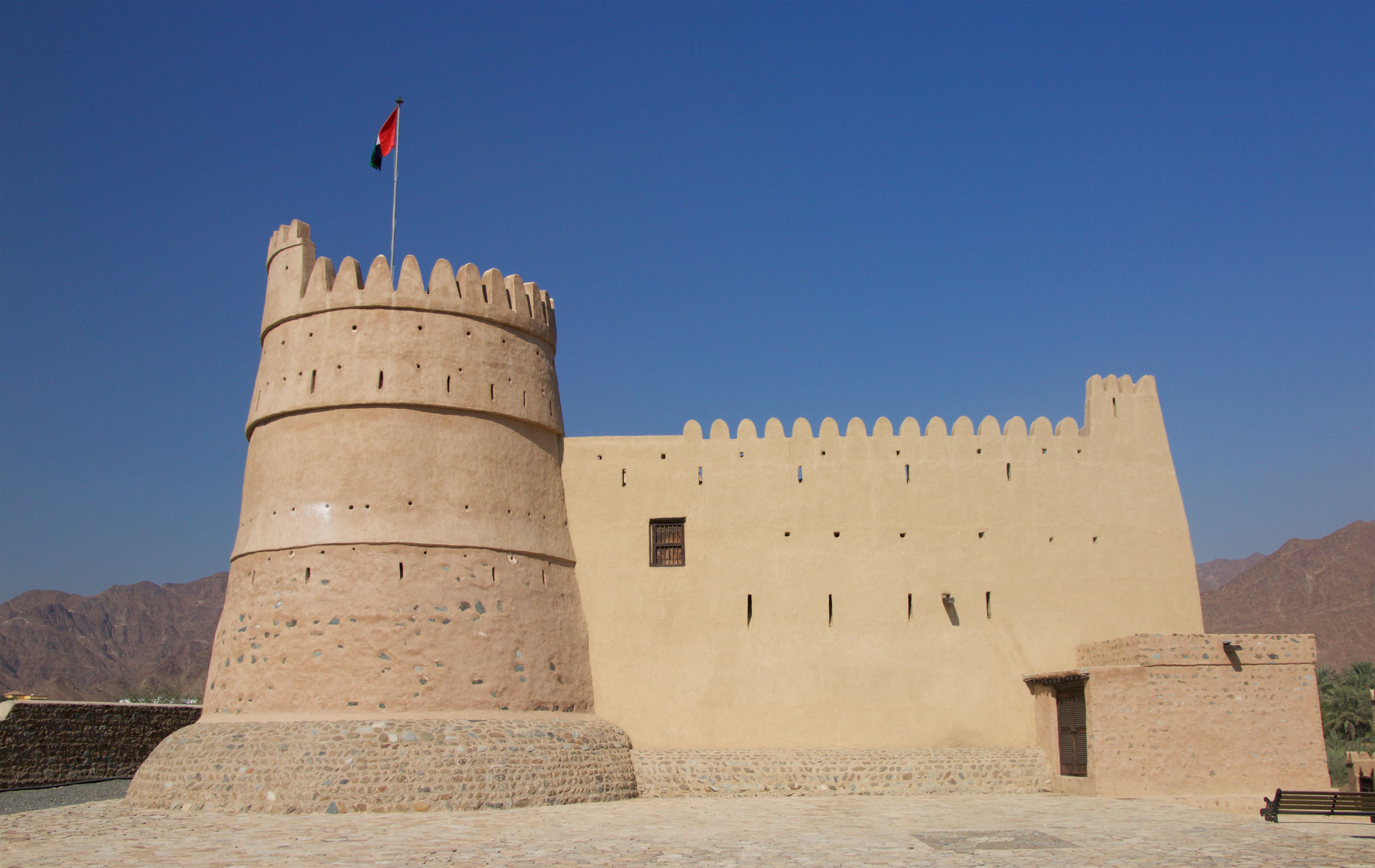
ENVIRONMENTAL CONSERVATION AT AL BITHNAH
Restoring the historic site of Al Bithnah in Fujairah and preserving habitats to help nature and people thrive.
Located in Wadi Ham between Masafi and Fujairah, Al Bithnah Fort contributed to the prosperity of local communities in the late 1800s. Today, the site has the potential to safeguard local communities once more, as a world-class example of sustainable development.
Emirates Nature-WWF and Etihad Rail, in collaboration with Etihad Rail, Crown Prince Court- Fujairah ,Fujairah Environmental Authority and Fujairah Adventure with the support of the local communities, are joining hands to renovate the ancient falaj irrigation system in Al Bithnah village and rehabilitate the surrounding habitat.
By exploring solutions to restore access to fresh water and introducing modern water management techniques, the project aims to promote sustainable farming and preserve the site’s biodiversity.
